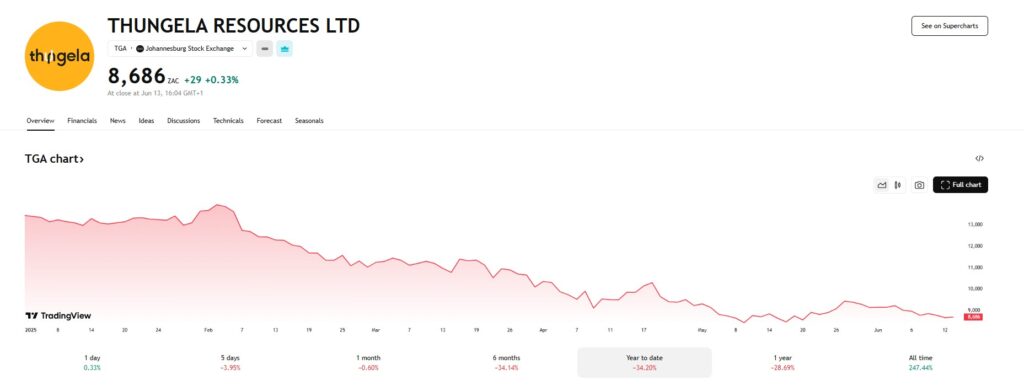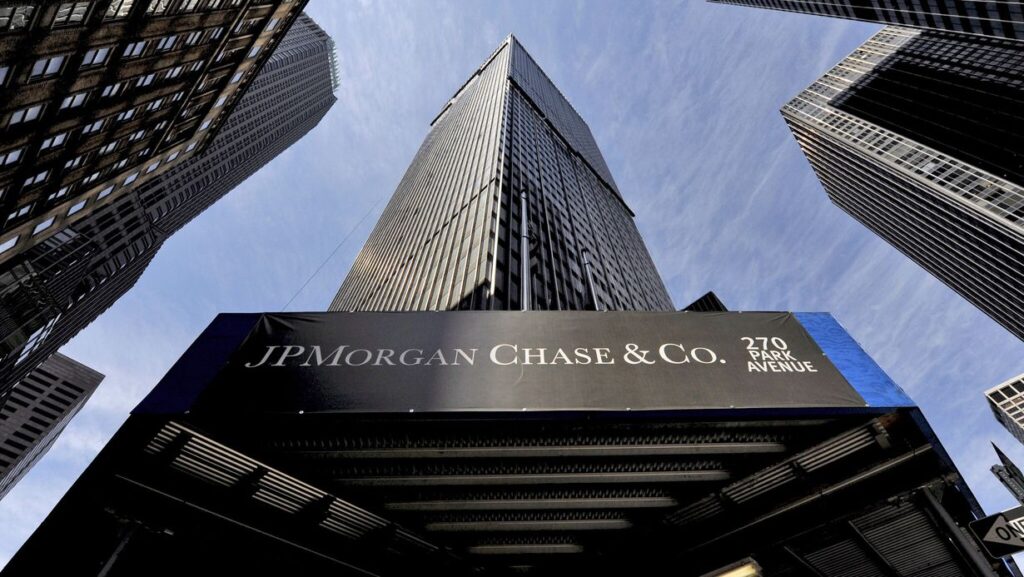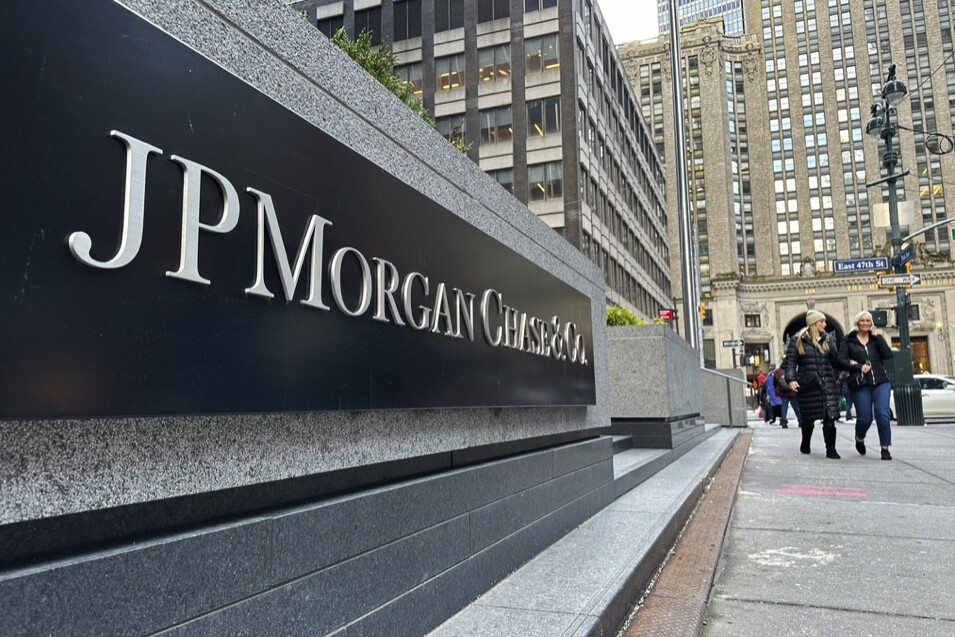At a Glance
- JPMorgan reduced its Thungela stake by $19.5 million as stock slumped over 35% YTD.
- Thungela’s 2024 profits fell sharply despite revenue gains, reflecting volatile coal market dynamics.
- Global decarbonization and weak coal prices drive cautious sentiment among institutional investors.
JPMorgan Chase & Co., the world’s largest bank by market value, has significantly reduced its stake in Thungela Resources Ltd., the South African thermal coal exporter led by CEO July Ndlovu. The $19.51 million divestment, disclosed on June 13, 2025, cuts the bank’s holdings from 6.63 percent to 4.04 percent.
The move comes amid mounting valuation pressures and weakening coal market dynamics in South Africa. It follows JPMorgan’s recent appointment of a new Head of Middle East for its asset management division.

Share slump triggers JP Morgan sell-off
The move, disclosed in a regulatory filing, comes as Thungela’s stock on the Johannesburg Stock Exchange (JSE) plunged 35.42 percent since the start of the year—falling from R134.49 ($7.50) to R86.85 ($4.84). The slump has erased over $320 million from the company’s market capitalization, now standing at $680.43 million.

As of Sept. 6, 2023, JP Morgan held 7.32 million shares valued at R1.13 billion ($58.82 million). That position had grown to 9.31 million shares by May 6, 2025, representing a 6.63 percent stake—valued at R835.38 million ($46.97 million) amid falling prices. In response to the continued decline, the U.S. banking giant offloaded shares worth $19.51 million, reducing its holding by 2.59 percent.
Thungela confirmed the transaction, noting that it was carried out in full compliance with JSE listing rules and Takeover Regulation Panel requirements.

A strategic shift in investment
JPMorgan’s decision to reduce its exposure to Thungela Resources marks a notable reversal from its 2023 move, when it raised its stake by 1.42 percentage points.
The latest divestment underscores growing caution in the volatile coal sector, where increased shareholding has not translated into lasting value.

Investor sentiment is cooling amid accelerating global decarbonization efforts and regulatory uncertainty, making coal-linked assets less attractive.
The shift in strategy comes as JPMorgan Asset Management sharpens its global focus, recently appointing Claude Kurzo—formerly Switzerland country head—as Head of Asset Management for the Middle East. Kurzo’s promotion reflects the firm’s intent to expand its footprint across MENAT and other emerging markets, signaling a broader pivot toward regions with long-term growth potential.
Under CEO July Ndlovu, Thungela delivered mixed results in 2024. While revenue rose to R35.55 billion ($2 billion) from R30.63 billion ($1.72 billion) in 2023, net profit slumped to R3.59 billion ($201.84 million) from R5.16 billion ($290.12 million), weighed by softer prices and higher costs in the first half of the year.
A partial recovery in H2 helped the miner post a $70.4 million profit, supported by cost-cutting measures, operational restructuring, and improved export pricing.
A cautious retreat amid coal headwinds
JP Morgan’s reduction in its stake in Thungela signals heightened investor caution toward fossil fuel-linked assets amid global shifts toward cleaner energy, coupled with coal price volatility, appear to be tempering institutional appetite.

For Thungela, the move is a reminder of the market’s growing scrutiny of coal producers, even those with solid fundamentals. It underscores the need to reinforce long-term value, reassure stakeholders, and navigate energy transition dynamics while maintaining earnings resilience.
While JP Morgan’s exit reflects broader decarbonization pressures, it also leaves room for long-term investors who still see opportunity in coal’s evolving global role.
You may also like: JPMorgan ups Sibanye-Stillwater stake to $292.1 million as miner eyes post-Froneman future













